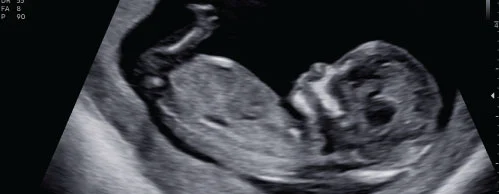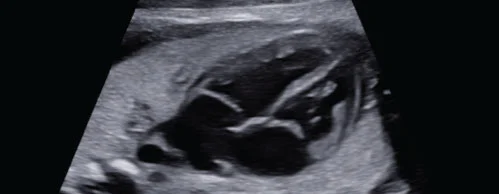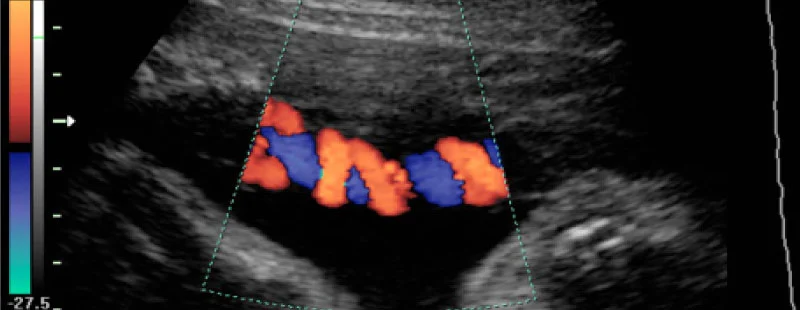Putting mom and baby first with specialized care!
Obstetric Services

The first early ultrasound can provide you with important information regarding your due date. Your baby’s heartbeat can be detected and viewed around 6 weeks gestation by vaginal scan and from 8-9 weeks by abdominal scan. Accurate measurements and images are taken to measure your baby from head to bottom. Second and third trimester ultrasounds can provide you with important information about your baby's growth and development.

Non-Stress Testing and Biophysical Profiles
Fetal assessment testing helps track the health of your baby during pregnancy. A BPP is commonly performed during the third trimester and includes an ultrasound evaluation with or without a nonstress test.
The BPP measures your baby’s heart rate, muscle tone, movement, breathing, and amniotic fluid levels. If your assessment includes the nonstress test, the sonographer will attach two belts to your abdomen to monitor the baby’s heart rate and movement.

Fetal echocardiography is a test using sound waves (ultrasound) to study the structure of your baby’s heart before birth. A fetal echocardiogram is a very detailed evaluation of your baby’s heart by a specialist in fetal echocardiography. There are no known risks to you or your baby.

Pregnancy can present unique challenges for women with chronic diseases such as diabetes, hypertension and asthma. We offer personalized care plans tailored to meet your specific needs and these unique conditions. Close monitoring is crucial in managing chronic diseases during pregnancy. We provide regular check-ups (both in-person and virtual), screenings, and diagnostic tests to track your health and the well-being of your baby. Our programs offer extensive patient education to help you understand your condition and make informed decisions about your health. We work closely with your primary care physician or specialist to ensure seamless coordination of care. We put you at the center of care, by fostering strong communication and collaboration with your whole care team.

Genetic counseling is a process in which a genetic counselor provides information and support to families whose pregnancies may have an increased chance for a birth defect or genetic condition. This process involves identifying your concerns, reviewing pregnancy history and family medical history, discussing any identified risks, and reviewing the benefits and limitations of appropriate prenatal testing options. A genetic counselor can help you reach decisions that correspond with your goals and personal values.

Fetal Blood Sampling (PUBS, Cordocentesis) A diagnostic procedure performed to obtain samples of your baby’s blood. It is also used, when necessary, to give blood transfusions or medications to your baby through the blood vessels of the umbilical cord.

Advanced Ultrasound Examinations/Fetal Diagnosis
A detailed anatomy ultrasound is a special type of ultrasound to assess your baby for structural or anatomical abnormalities. This is usually performed at a perinatal center where more expertise in ultrasound scanning is available. The scan is performed by a board-certified sonographer and interpreted by a qualified and experienced doctor called a Perinatologist who specializes in high-risk pregnancies. Detailed imaging of your baby from head to toe is done in addition to the basic images obtained at a routine ultrasound. We have the most advanced equipment available, along with 3D imaging. The ultrasonic waves used to image your baby cannot be heard and produce no sensation. A key benefit of ultrasound is that it does not use x-rays, therefore it is safe for both you and your baby.

A form of ultrasound that can detect and measure blood flow. Doppler ultrasound depends on the Doppler effect, a change in the frequency of a wave resulting here from the motion of a reflector, the red blood cell.

Perinatal consultations are available to help you have the best possible outcome from your pregnancy. During a perinatal consultation you will meet with one of our board-certified perinatologists to discuss your specific medical, obstetrical or genetic issues. This perinatal consultation focuses on how these conditions might impact the outcome of your pregnancy. Working with your referring obstetrician, our perinatologists help to identify high risk pregnancy issues. A plan is developed based on your individual needs.
Consultations can also be done before you get pregnant. Preconception consultations are helpful for patients who are considering a future pregnancy, but have concerns due to pre-existing medical, obstetrical or genetic problems.

We are committed to providing exceptional care for mothers and babies at risk of preterm delivery. Our Prematurity Intervention Program is designed to empower healthy beginnings by identifying and managing risks, providing comprehensive support, and ensuring the best possible outcomes for you and your baby. Our program offers a range of specialized interventions to reduce the risk of preterm birth. These may include cervical cerclage or hormonal treatments tailored to meet your specific needs. Close monitoring is essential in managing preterm delivery risks. We provide regular check-ups, cervical length measurements, fetal growth assessments, and other diagnostic tests to closely monitor your health and the development of your baby. Should your baby be born prematurely, Christiana Care is equipped with state-of-the-art neonatal facilities and a team of experienced neonatologists who will provide specialized care to support your baby. The journey to lifelong wellness starts with healthy beginnings.

Amniocentesis
Amniocentesis is a prenatal test in which a small amount of amniotic fluid is removed from the sac surrounding the fetus and is tested. The sample of amniotic fluid (less than one ounce) is removed through a fine needle inserted into the uterus through the abdomen, under ultrasound guidance. The fluid is then sent to a laboratory for analysis. Different tests can be performed on a sample of amniotic fluid, depending on the genetic risk and indication for the test.
Chorionic villus sampling (CVS)
Chorionic villus sampling (CVS) is a test done during early pregnancy that can find certain problems with your baby. It is generally done when either you or the father has a disease that runs in the family (genetic disorder).

Our practice is involved in research studies sponsored by the National Institute for Health.
Expert care for every stage of womanhood!
Gynecologic Services
An ultrasound is an important part of the evaluation and treatment process for many gynecologic symptoms and conditions. From abdominal pain to infertility, our 3D enhancement helps us make the diagnosis to get you on track with your individualized treatment plan.

Transabdominal or Transvaginal
A pelvic ultrasound is an exam that uses sound waves to create a picture of your uterus, ovaries and surrounding structures. This can help identify and diagnose potential problems such as pelvic or abdominal pain, heavy or painful periods, or other possible irregularities.
The Delaware Center for Maternal & Fetal Medicine performs pelvic ultrasounds either transabdominally or transvaginally. Color doppler and 3D imaging are used during your ultrasound exam to aid in a precise diagnosis. The color doppler technology tracks the blood flow in your pelvic organs while the 3D enhancement allows our physicians to view the height, depth, and width of your pelvic structures.

Saline Infusion Sonohysterogram (SIS)
A sonohysterogram is an ultrasound technique that provides pictures of the inside of your uterus along with its lining, called the endometrium. This procedure begins like a transvaginal pelvic ultrasound and then injects saline (salt water) into your uterus to better view its contour and shape.
This exam, combined with our 3D imaging, helps diagnose some common gynecologic conditions including polyps, fibroids, and other adhesions. A sonohysterogram is a valuable tool when caring for women who may be experiencing infertility or recurrent miscarriage.
